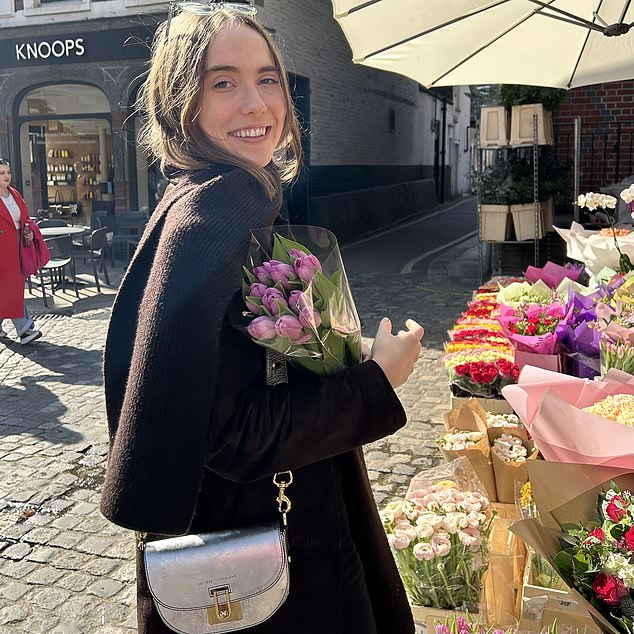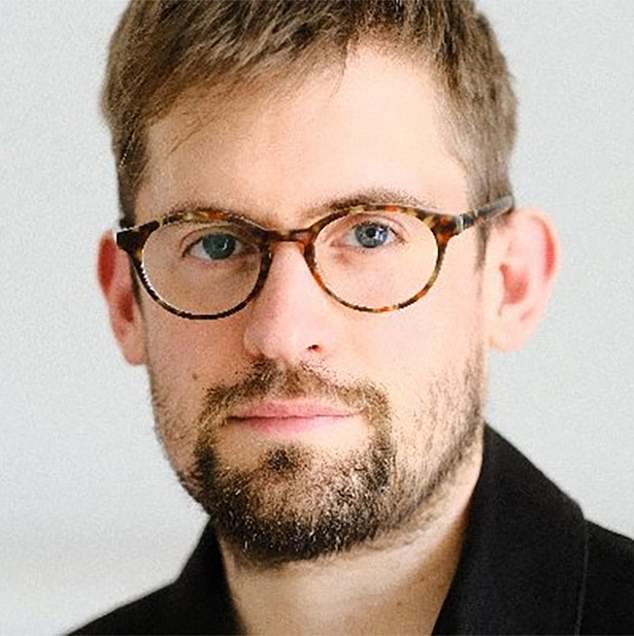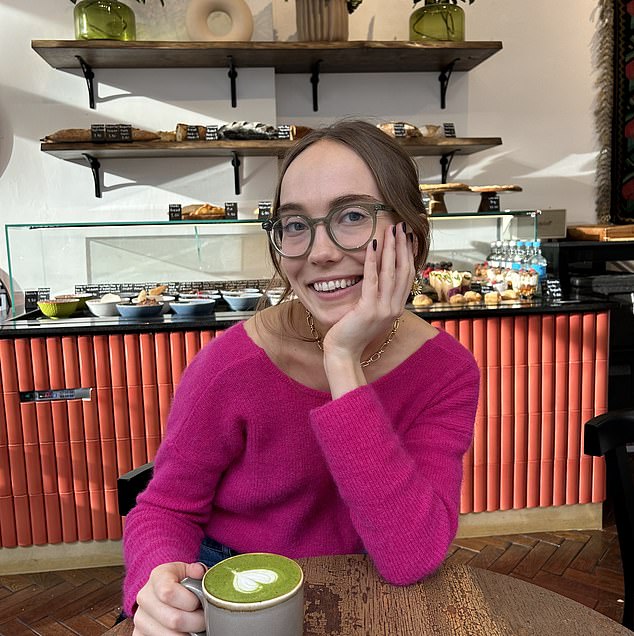In Sex and the City, the comedy that defined the 2000s dating scene, Carrie and her friends get together to talk about the men wreaking havoc on their lives.
It makes me a little envious; when I hang out with my single friends, we swap stories about the miseries of dating apps.
At 26, I am a member of Generation Z (now 12-27, though you have to be 18 to use a dating app). We have the dubious privilege of being the first generation to come of age in an age where dating apps are ubiquitous.
Once you’ve left the boozy years of college behind you, no one is limited to chatting up a potential match in a pub or bar anymore. And while I can only speak for my own social circle, neither of us have formed relationships with mutual friends. Apps are seen as the only way to meet someone new.
But far from making dating easier, it has turned our love lives into a grueling, brutal chore. No wonder a recent Forbes survey found that 79 percent of Gen Z describe themselves as experiencing “burnout” thanks to online dating.
Antonia Lenon says that far from making dating easier, apps have turned young people’s love lives “into a brutal and exhausting task”
On TikTok, young women are begging their audiences to ditch dating apps, with their manipulative algorithms, for the sake of their mental health. One typical critic fumes: “[Dating apps]don’t care about you finding your soulmate… they just care about taking your money and keeping attractive people locked up.”
There are even signs that we’re switching off altogether: Shares of dating app Bumble plunged 30 percent this month after the company cut its revenue projections, while Match Group, behind Tinder and Hinge, has reported a decline in the number of paying users. Dating app downloads have been declining since 2019.
What exactly are we complaining about? The truth is that apps have changed since they were launched just over ten years ago, and not for the better.
Back then, dating was a fun (and deliberately addictive) game. It was also a really useful tool for finding love: a survey of 2,000 British couples who got married between 2017 and 2021 found that 28% had met online.
Now, however, as app creators struggle to increase their profits, the terms of the game have changed and it seems my generation can only lose.
On Hinge, for example, your “best” matches are grouped into a separate category called “Top Rated.” You see 70 matches per week, but you can only contact one for free. To contact the rest, you must buy a virtual “rose” to send to them, at a cost of £10 for three “roses.”

Antonia suspects that app algorithms deliberately offer junk services in the hope that you will give in and pay for premium services.
There are more expensive options too: a top-tier subscription, ‘Hinge X’, costs £89.99 for three months, while Bumble’s top subscription costs £149.99 for three months and Tinder’s ‘platinum’ service costs £116.99 for six months.
The suggested matches are often bizarre; it’s hard not to suspect that the algorithm is deliberately serving up failed matches in the hopes that you’ll cave and pay for a premium service.
Real dates are often comically awful. For example, my friend recently went to the pub with a guy who turned up in a three-piece suit. He told her that he spent his weekends at football matches being aggressive towards the opposing team’s supporters. “I’m a football hooligan,” were the words he used.
There’s a relentless focus on appearance – forget a few fun snaps, self-promotional videos and voice recordings on your profile are increasingly the norm these days.
Even when you find someone you like, the rules of the game can be incredibly strict.
My friend Hannah* started dating someone on Hinge last year; they dated for three months and even met each other’s parents.
He asked her in person to be his girlfriend and a few days later he sent her a WhatsApp message to inform her that he was back with his ex.

Dr Luke Brunning, professor of Applied Ethics at the University of Leeds, says the private nature of communication on dating apps allows users to engage in cruel behaviour.
He clearly had no qualms about acting like that, wishing him the best of luck in his career and signing off with two hearts and a smiley emoji. She never heard from him again.
Dr Luke Brunning, professor of applied ethics at the University of Leeds, says the private nature of communication through apps allows for this kind of cruelty.
“There are fewer social consequences for bad behavior,” she explains. “Many dating app users say they are aware that they behave in ways they would regret in person, but they find it difficult to stop.”
Another friend, Chloe*, met a guy and they went on a date that lasted 13 hours. They rode bikes in the sun, went to lunch and then dinner. They went on two more equally exciting dates and on the fourth, he stayed over at her apartment and they slept together.
A few days later, she sent him a message saying that she was clearly looking for something serious and that he wasn’t interested. He then deleted her from the dating app and unfriended her on social media.
Her parting gift, she later discovered, was an STD.
Even my rare friends who have managed to date someone through an app for a long time often end up feeling lukewarm towards them, and some seem reluctant to introduce them to our group of friends.
Maybe it’s because a relationship that begins on an app seems devoid of serendipity.
Despite all this, I haven’t followed the advice of TikTok influencers to delete my dating profile, and neither have most of my friends.
We feel trapped in our toxic relationship with apps because, well, we all have them and there’s still a small part of us that hopes they work.
I have no doubt that there are plenty of decent guys on Hinge or Bumble.
But will we ever find ourselves amidst the embarrassing profiles, cumbersome algorithm, and horrors of dating etiquette in 2024? Probably not.
*Names have been changed

